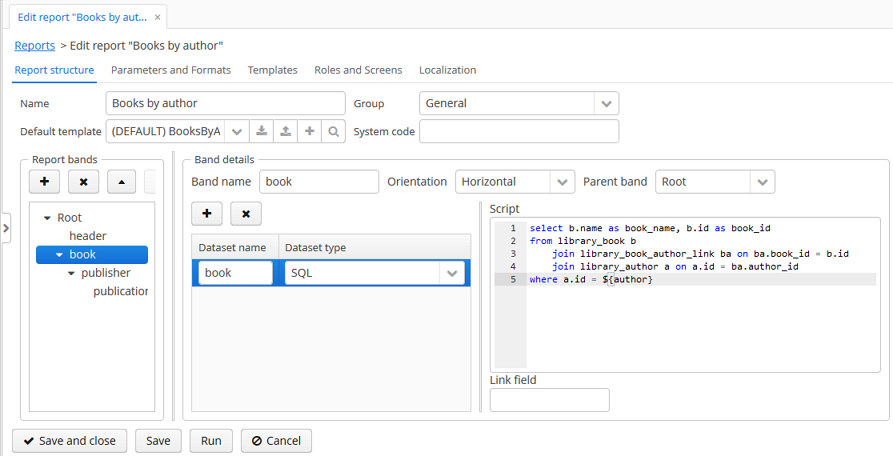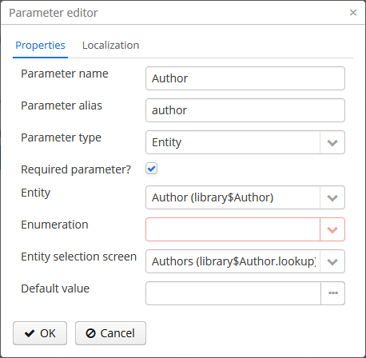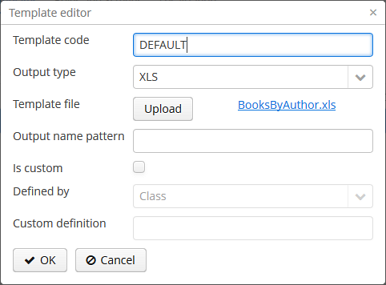3. Sample Report
In this chapter we will consider the structure of one of reports from the sample Library application, which source code is available at https://github.com/cuba-platform/sample-library.
To use reports in your project, activate the reports item in the Base projects list on the Project properties page of CUBA Studio.
Open the Reports → Reports screen and click on the Import button to import the report. Choose Reports.zip in the project root directory. Two reports will appear in the table, one of them will be Books by author. This report displays the list of book publications for selected author; books will be grouped by book name and publisher. The output format is XLS.
-

Let us consider report bands.
-
header band - report header. It contains the dataset with the Groovy script which outputs the report external parameters values:
[['authorName' : (params['author'].firstName + ' ' + params['author'].lastName)]]-
The book band outputs the list of books by running the following SQL query:
select b.name as book_name, b.id as book_id from library_book b join library_book_author_link ba on ba.book_id = b.id join library_author a on a.id = ba.author_id where a.id = ${author}This query uses the external report parameter - author. The parameter has the Entity type, however in SQL queries you can compare it directly with entity identifier fields; the conversion will be done automatically.
-
The publisher band, which is a child band of book, outputs the book publishers by running the following SQL query:
select p.name as publisher, bp.year, p.id as publisher_id from library_book_publication bp join library_publisher p on p.id = bp.publisher_id where bp.book_id = ${book.book_id}This query uses the parent band field
book_idas a parameter. This provides dependency between the parent and child bands.-
The publication band, which is a child of the publisher band, outputs the book publications by running the following SQL query:
select ld.name as department, count(bi.id) as amount from library_book_instance bi join library_book_publication bp on bp.id = bi.book_publication_id join library_library_department ld on ld.id = bi.library_department_id where bp.publisher_id = ${publisher.publisher_id} and bp.book_id = ${book.book_id} group by ld.nameThis query uses both parent bands fields as parameters -
book_idandpublisher_id. -
-
Report parameters.
The Parameters and Formats tab contains one declared report external parameter - Author:

When running the report, the user will have to enter this parameter. The author selection will be performed via the
library$Author.lookupscreen, available in the application. -
Report templates.
The Templates tab contains a single defined XLS template, loaded from
BooksByAuthor.xls
-
Report Name Localization.
The Localization tab contains the report name for the Russian locale:
ru = Книги по автору
You can run report from the generic browser in the Reports → Run Reports screen.